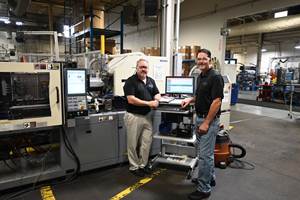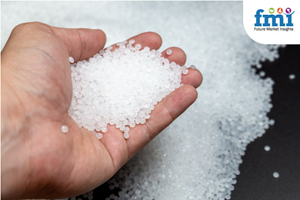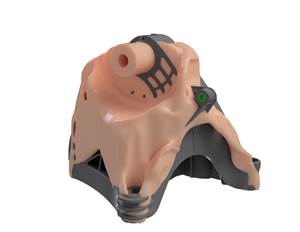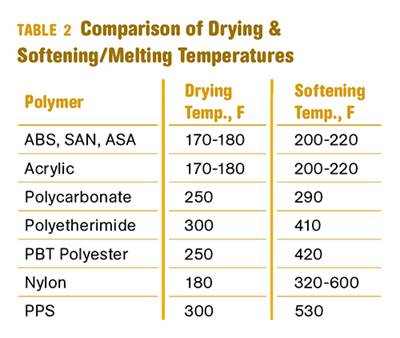'Plug-and-Play' Bioplastic Platform Results in Various Grades of PC
Teysha Technologies' proprietary platform enables development of polymers that combine strength and toughness with hydrolytic breakdown to biologically beneficial byproducts at end of life.
We recently were contacted by U.K.-based Teysha Technologies, which after more than a decade of research has achieved a landmark breakthrough in creating a viable substitute for existing petroleum-based PC resins, and potentially other plastics
Explains project research scientist Ashlee A. Jahnke, “Our technology uses a plug-and-play system that takes monomers and co-monomers—the natural building blocks that make up plastic—to create a polymer that works and functions in a very similar way to the plastic we’re used to. The difference is that our monomer feedstocks are derived from natural sources such as starches and agricultural waste products, rather than hydrocarbon-based petrochemicals sourced from fossil fuels.”
Moreover, the platform the researchers have created to build these biopolymers reportedly allows them to precisely tune the physical, mechanical and chemical properties of the resulting polymer to make it usable in a variety of materials. As such, they are able to adjust the strength, toughness, durability and longevity of the polymers to suit different applications. Says Jahnke, “We can create rigid or flexible materials, or ones that offer different thermal properties. Crucially, we can also control the biodegradation of our polymers so that they breakdown in weeks or years, returning back to their basic building blocks that can be beneficial to plants.”
Here are Jahnke’s responses on some key questions we posed regarding the status of the technology:
● Does your technology result in a PC type polymer only at this juncture? When you say it can produce a wide range of plastics, does it mean different grades of PC and/or PC blends... or other thermoplastics?
“Currently, all the plastics we produce are polycarbonates, but many also contain ester bonds. We can also produce simple polyesters using our technology platform. We can produce a wide range of plastics because our plug-and-play platform allows us to use various natural product monomers as polymer building blocks, and our current focus is on various grades of polycarbonate.”
● Are you licensing the technology? Globally?
“We are not licensing at the moment, but we will be exploring several commercial arrangements, both upstream and downstream, and global licensing will most definitely form part of our strategy. Our chairman, Dr. Clive Rankin, has particular experience in this field as ex-vice president of Degussa Fine Chemicals.”
● Is there any performance data you can share comparing the material to virgin PC and/or other bio-based plastics like PLA?
“We don't have much of this type of direct comparison data at this point, but this is something that we are working on. We do know that our degradation temperatures are comparable to other bioplastics, and a bit lower than typical PC on the market. Other performance characterization work is ongoing.”
● Is anyone using the technology toward a commercial end? Are these polymers for injection molding? Extrusion? Blow molding? Is it for rigid products or flexible products as well? Can you list potential applications?
“The technology is not yet at the commercial stage. However, our thermoset polymers have demonstrated the ability to be molded and cured, by both UV and heat, to form prototype fishing lures. The thermoplastics will likely be best for injection molding, but we have not begun testing this yet.
“Beyond these applications, our technology platform allows us to be very versatile, because the products can be either rigid or flexible depending on the monomers used for polymerization. As such, there is a wide range of potential applications, from building insulation to food packaging and medical implants to drug delivery systems. We have even considered molding for automobiles.”
Related Content
Atop the Plastics Pyramid
Allegheny Performance Plastics specializes in molding parts from high-temperature resins for demanding applications as part of its mission to take on jobs ‘no one else does.’
Read MorePlastic Compounding Market to Outpace Metal & Alloy Market Growth
Study shows the plastic compounding process is being used to boost electrical properties and UV resistance while custom compounding is increasingly being used to achieve high-performance in plastic-based goods.
Read MoreABC Technologies to Acquire Windsor Mold Group Technologies
The Tier One automotive supplier with compounding and blowmolding machine capabilities adds the 50-yr-old molder and moldmaker.
Read MoreDesign Optimization Software Finds Weight-Saving Solutions Outside the Traditional Realm
Resin supplier Celanese turned to startup Rafinex and its Möbius software to optimize the design for an engine bracket, ultimately reducing weight by 25% while maintaining mechanical performance and function.
Read MoreRead Next
Why (and What) You Need to Dry
Other than polyolefins, almost every other polymer exhibits some level of polarity and therefore can absorb a certain amount of moisture from the atmosphere. Here’s a look at some of these materials, and what needs to be done to dry them.
Read MoreHow Polymer Melts in Single-Screw Extruders
Understanding how polymer melts in a single-screw extruder could help you optimize your screw design to eliminate defect-causing solid polymer fragments.
Read More
























